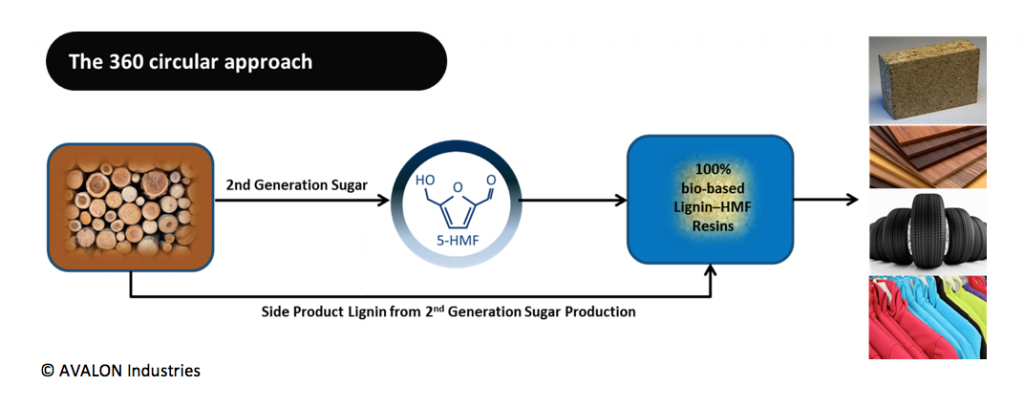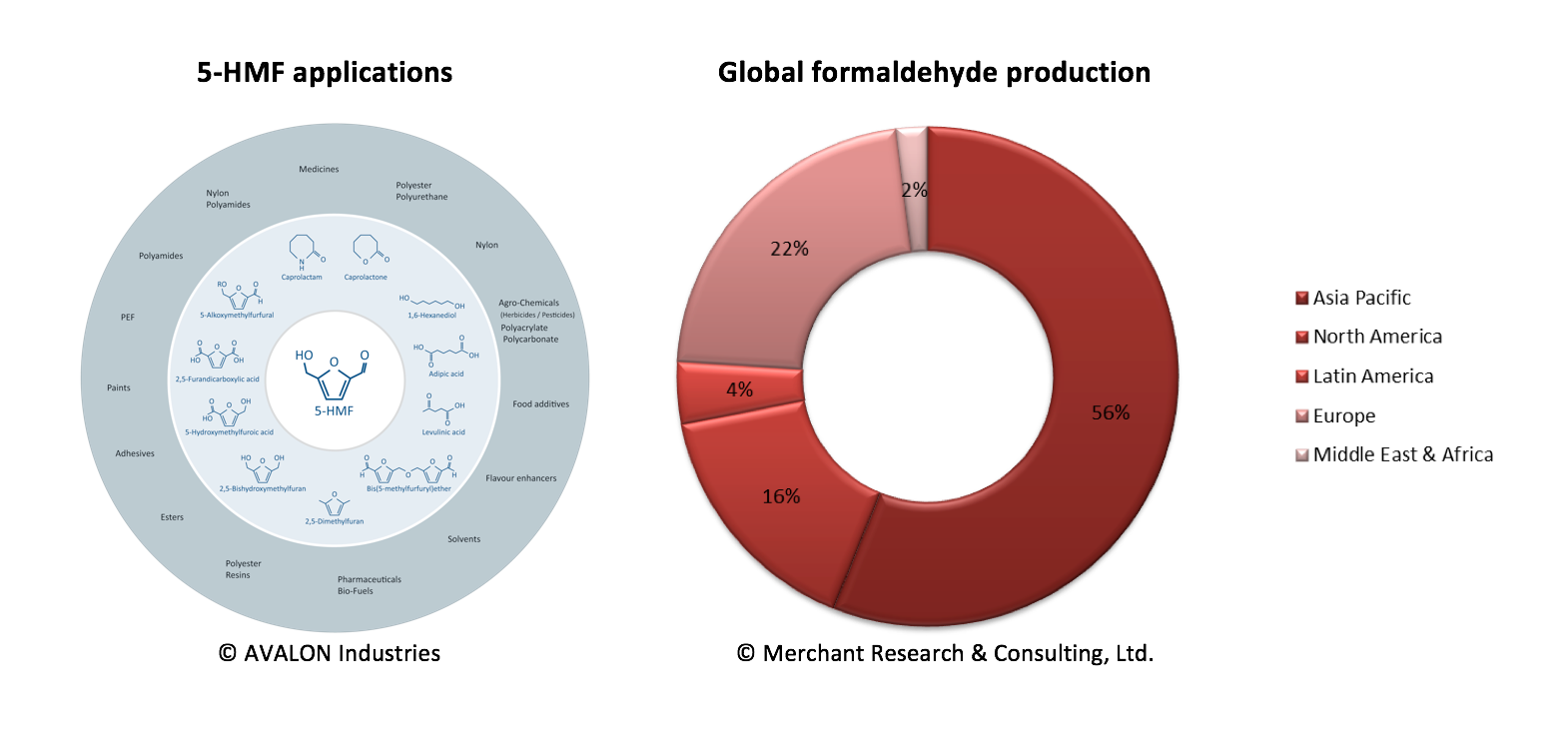In conjunction with the Institute for Materials and Wood Technology at the Bern University of Applied Sciences, AVALON Industries is launching a research project to replace formaldehyde in phenol-formaldehyde (PF) resins with bio-based, non-toxic platform chemical 5-HMF (5-Hydroxymethylfurfural). Government-sponsored by the Swiss Commission for Technology and Innovation (CTI), the project will build on the positive results in a similar research project, run by AVALON Industries parent company AVA-CO2, to develop non-toxic urea-HMF resins.
The formaldehyde-based resin manufacturing industry has been facing an increasing challenge since formaldehyde was classified as carcinogenic and mutagenic in the 6th adaptation to the technical and scientific progress of the CLP (Classification, Labelling and Packaging) EU directive in June 2014. This classification has far-reaching and immediate consequences for a variety of business sectors, especially in the furniture industry.
Formaldehyde is a key material for the chemical industry, serving as the source for many chemical compounds. The EU produces approximately 10 million tonnes per year and 47 million tonnes of formaldehyde are produced worldwide. A large proportion of synthesised formaldehyde is used in the production of glues and impregnating resins for wood-based materials. Adhesive resins are used in the manufacture of particle boards, plywood panels and chipboards, where the furniture industry is one of the main users.
The research project, ‘Development of a formaldehyde-free phenol type adhesive system for the manufacturing of plywood’, aims to come up with a formaldehyde-free, sustainable and non-toxic adhesive for industrial use in the wood-processing industry. The project will also investigate the replacement of phenol with lignin in order to develop 100% bio-based lignin-HMF resins.
“We’re delighted to lead yet another project developing non-toxic resins,” says Thomas Kläusli, Chief Marketing Officer at AVALON Industries. “The aim of this project is to develop a formaldehyde-free, sustainable phenol-HMF adhesive for industrial use in the wood-processing industry. We consider 5-HMF to be the most promising formaldehyde alternative for future resin production. In addition to replacing formaldehyde, we will also be studying the replacement of phenol with lignin in order to achieve a truly 100% bio-based adhesive.”

What is 5-HMF
5-HMF is a bio-based platform chemical containing both an aldehyde and an alcohol functional group. The special characteristics of 5-HMF offer many applications in different industries. For example, the oxidation of 5-HMF to FDCA (furandicarboxylic acid) forms the basis for the manufacture of PEF (polyethylene furanoate). PEF is a bio-based substitute for petroleum-based PET and can, amongst other applications, be used in the manufacture of bottles for soft drinks or for food packaging. It can also be used in the textile industry or the medical technology sector. 5-HMF has applications in the pharmaceutical industry, as an API (active pharmaceutical ingredient), and also has uses in foodstuffs and in the agrochemical sector. The research project may lead to various ways to employ 5-HMF as a substitute for the carcinogenic formaldehyde.

About AVALON Industries
Swiss-based AVALON Industries is a trailblazer in sustainable, bio-based chemistry. Our game-changing Hydrothermal Processing (HTP) technology makes us the global leader in the industrial production of bio-based platform chemical 5-Hydroxymethylfurfural (5-HMF). A renewable alternative to petroleum-based materials, 5-HMF is used in a broad range of applications in the chemical, pharmaceutical and food industries. Once large-scale production is achieved, 5-HMF will become a crucial building block for novel packaging materials such as Polyethylene Furanoate (PEF) as well as bio-based resins and adhesives. Since 2014, AVALON Industries’ subsidiary AVA Biochem has been producing high-purity 5-HMF for the research and speciality chemicals markets. By collaborating with partners, AVALON Industries will make cost-effective, large-scale production of 5-HMF a reality.
About Bern University of Applied Sciences
The Bern University of Applied Sciences BFH is an application-oriented university. In addition to teaching, the university provides continuing education, research and development and services relating to its core competences. The Department of Architecture, Wood and Civil Engineering is an important partner within the building and construction scene: in Burgdorf and Biel/Bienne, some 800 in-demand future professionals are being educated for positions in the timber, building and construction industries. All the department’s courses are closely linked to current practices and trends, and facilitate the rapid progression of new graduates to professional life. In Biel, the focus is on wood as a raw material and a working material. The department has been successfully providing training in wood engineering for over 20 years. Its courses are unique in Switzerland and enjoy an international reputation in the wood industry. The Higher Technical School HF Wood Biel is affiliated with the Department of Architecture, Wood and Civil Engineering. The range of courses for persons from the fields of timber construction, joinery, interior furnishing and the timber industry rounds off a broad educational programme.
Source
AVALON Industries, press release, 2016-01-30.
Supplier
AVA Biochem
AVA-CO2
AVALON Industries
Berner Fachhochschule (BFH)
Swiss Commission for Technology and Innovation (CTI)
Share
Renewable Carbon News – Daily Newsletter
Subscribe to our daily email newsletter – the world's leading newsletter on renewable materials and chemicals









